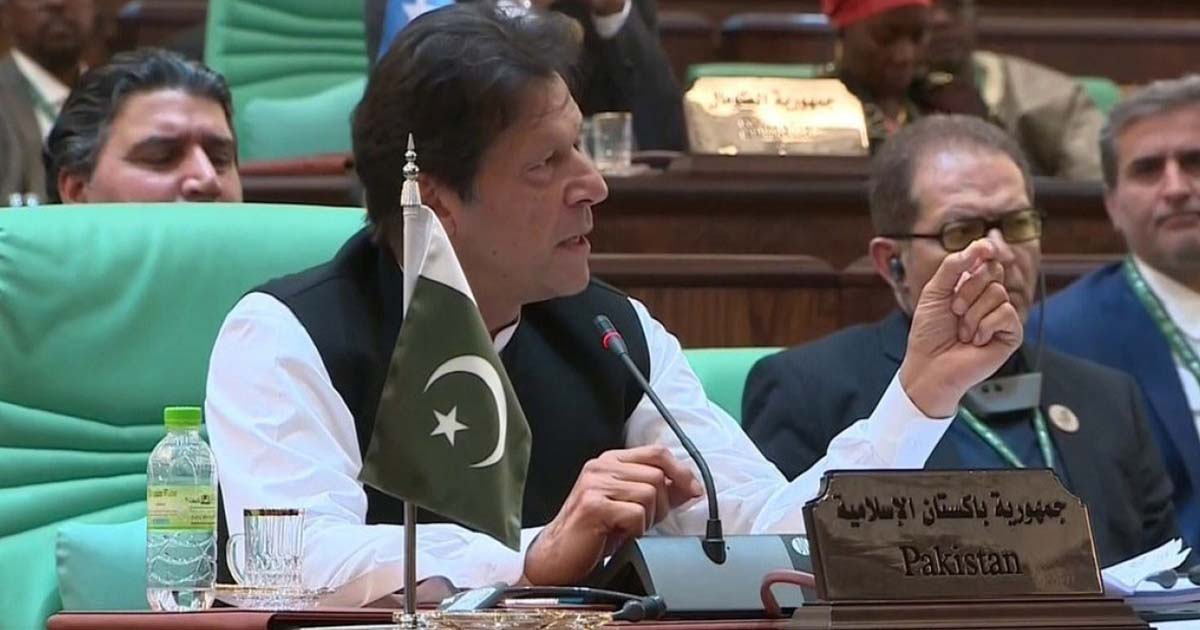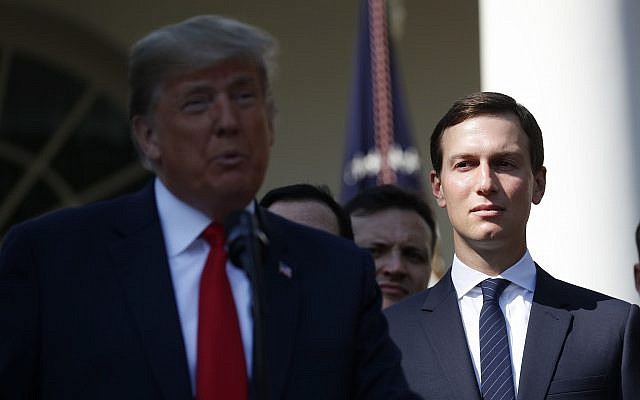Prime Minister Imran Khan is due to present his maiden address at the UN General Assembly session on 27th September, hours after Indian Prime Minister Narendra Modi’s address to the international leaders attending the session. The Premier has pledged to use his address to highlight the escalating humanitarian crisis in the occupied valley of Kashmir, which has been under lockdown for the past 50 days.
Analysts and opinion-makers observed that Pakistan has failed in creating a strong diplomatic case in the international arena, and the United Nations(UN) and its relevant institutions cannot be expected to lend substantial support to the Kashmir cause.
Kashmir in UNGA
Speaking to Mohammad Mallick on his Primetime show, Dr. Adil Najam, the inaugural dean of the Pardee School of Global Studies at Boston University, observed the likelihood of Pakistan’s success in highlighting the Kashmir issue in the upcoming UN General Assembly session
The former Vice-Chancellor of LUMS said, “Success will be measured by examining the number of times the issue of Kashmir will be raised during the session. Pakistan will certainly highlight the issue, but India is expected to present Kashmir as an internal matter, and will largely avoid any discussion over it.”
He added, “Another important factor is how many countries, aside from Pakistan, raise the issue of Kashmir during their address. Will the UN Secretary-General mention the issue of Kashmir in his framing speech and urge the international community to contemplate?”
Dr. Najam noted that presently the issue is whether or not Kashmir be a subject of discussion, and while Pakistan wants to bring it to the forefront, India wants it to be receded.
Responding to a question on Pakistan’s inability to table a resolution at the UN Human Rights Council UNHCR, Shamshad Ahmed Khan, former Foreign Secretary, observed that the dynamics of power configuration in the UN are such that the “issues of Kashmir and Palestine” are not getting the attention they deserve in the international community.
The defense which has been prepared for a very long time is continuously improving, and to say that it would be just based on Indian desire that they come and capture, it won’t be possible for them.
Shamshad Ahmed Khan said, “The final decision on the Kashmir issue will not be facilitated by the Organization of Islamic Cooperation (OIC) or the membership of the United Nations. This issue can only be resolved between India and Pakistan, with the pressure of the great powers of the globe.”
Referring to the hopes with regards to the UN General Assembly session in resolving the Kashmir dispute, the former Foreign Secretary stressed, “Decisions do not take place in New York, they take place in Washington.”
Are P5 Countries not Interested?
Global Village Space reached out to Gen (retired) Amjad Shoaib, a prominent defense analyst, on the possibility of the United Nations Security Council intervention on the Kashmir issue. Gen Amjad Shoaib observed that the UNSC will not be able to play a definitive role due to the clashing interests of the Permanent 5 countries.
Gen Shoaib said, “The UN Security Council will not play any role if the P5 countries are not interested in playing a role, which seems to be the case at the moment. I believe that the UNSC will not play any significant role, but again, did we make substantial effort to alter the dynamics?”
Addressing Conf participants, Amb @zjanjua said that Indian actions in IOJ&K pose serious threats to reg & intl peace. Only way to resolve Jammu & Kashmir Dispute was through implementation of UNSC Res which would enable Kashmiris to exercise their right to self-determination pic.twitter.com/GO7Fg1Kph1
— Pakistan Embassy Belgium (@EmbassyPakBel) September 22, 2019
The defense analyst lamented that it is understood that the international community has economic interests attacked to India, but Pakistan has failed to undertake diplomatic efforts in this regard. He said, “Our diplomacy is poor, and even though this government has done more than the previous governments, our diplomacy continues to remain ineffective.”
Gen Amjad Shoaib noted that the diplomatic efforts of Pakistan lack in terms of methodology and effectiveness, as “we have not understood the sensitivities of the world and tried to play upon that.”
He lamented that our leadership has relied on telephonic conversations and twitter to spread their narrative rather than visiting world leaders and lobbying support, which sends the message that “Pakistan is not attaching much importance to the Kashmir issue.”
Read more: “Howdy Modi!” Rally: Kashmir and Khalistan fighting for Freedom
The defense analyst stressed that Pakistan needs to come forward with a more plausible, and stronger narrative that counters Indian allegations of cross-border terrorism, and highlights India’s involvement in terrorist attacks and sponsoring terror networks to target Pakistan, alongside its barbaric human rights violations in occupied Kashmir.
War of Narratives in the US
Dr. Adil Najam observed that US President Donald Trump is a “loose cannon” and despite the “theatrical” joint rally with the Indian Prime Minister Narendra Modi in Houston, he is still likely to put forward a stance on Kashmir.
Dr. Adil Najam said, “US President Donald Trump is a loose cannon and he can say anything, given his statements with regards to Kashmir. India’s agenda is to overwhelm the issue of Kashmir with visual glitter and noise of the rally to demonstrate that the US is in India’s camp.”
Prominent analyst Adil Najam explained that this is a “war of narratives” and India has set out to eliminate the narrative of Kashmir by touting the agendas of “Rising India.” He said that Prime Minister Imran Khan is focused on highlighting the case of Kashmir, which he will also pursue during his meetings with the US leadership and Bill Gates, whose foundation is due to award Modi with a prestigious accolade.
— Donald J. Trump (@realDonaldTrump) September 22, 2019
Speaking to Global Village Space on the role of the US President Donald Trump in the Kashmir issue, Gen (retired) Amjad Shoaib warned, “Trump has offered to mediate but we should not go into that trap. History of the last 18 years shows the strategic alliance the US has with India, and their strategic interests are aligned with India.”
The defense analyst explained, “In Afghanistan, they (US) have been obliging India at the cost of Pakistan’s national security interest. They completely ignored our interests and we suffered huge losses on account of Indian-sponsored terrorism from Afghanistan.”
“I don’t believe that Americans are capable of delivering sincerity, their approach will always be to pressurize Pakistan into obliging India in a bid to obtain trade or political concessions from New Delhi.”
Indian Designs on Azad Kashmir
Commenting on India’s aggressive posturing and claims over Azad Jammu and Kashmir, notable defense analyst retired Gen Amjad Shoaib observed that Pakistan’s defense is “very strong.”
Explaining the dynamics, Gen Shoaib said, “As far as Azad Kashmir is concerned, not only is it a difficult terrain but also, our defense is very strong. Militarily, I don’t believe that it is possible for India to capture any area of Azad Kashmir, and this reality is very much known to them.”
As ambassador for the people of Kashmir I am going to expose the oppression & gross human rights violations of the fascist Modi regime against the brave Kashmiri people. The western world doesn’t understand the RSS agenda inspired by Nazi Germany. https://t.co/SZ8F6t5CVL
— Imran Khan (@ImranKhanPTI) August 30, 2019
He observed that the defensive capabilities of Pakistan are similar to those of India. He said, “We do not have any aggressive designs against any country, but we definitely always keep an eye on the Indian capabilities, and we remain prepared for that.”
Referring to the remarks made by BJP ministers with regards to claiming “physical jurisdiction” over Azad Kashmir, the defense analyst said, “The defense which has been prepared for a very long time is continuously improving, and to say that it would be just based on Indian desire that they come and capture, it won’t be possible for them.”
He added, “They have to realize that the population in Azad Kashmir is not in their favor, it is in the favor of Pakistan. You cannot just go and start ruling a hostile population, they won’t allow them to do that. This our strength, where we have the support of our own masses for the defense of our country.”
Gen Amjad Shoaib said that the possibility of India claiming any “jurisdiction” over Azad Kashmir can be completely ruled out. The defense analyst observed that the South Asian region is a “sensitive region” and the global powers and international institutions will not allow the two nuclear-armed countries to go to war over this issue.
Read more: International Call for “Free Kashmir”: Modi’s Nightmare came to life in Houston
However, the analyst warned, “India would definitely like to stir up hostilities, and to achieve this they can find an excuse by staging a false flag operation.” General Amjad Shoaib lamented that since Pakistan has never made efforts to “bring out Indian lies in the international community”, as seen during the Pulwama attack, India regards false flag attacks as a “convenient and successful process” to malign Pakistan.
He observed that Pakistan launched a powerful military defense, but the diplomatic efforts were not sufficient to protest against the violation of Pakistan’s airspace and its sovereignty. He said, “India’s motivation to stage a false flag attack is to divert the attention from the Kashmir issue towards the escalation of the situation on the borders or LOC.”














